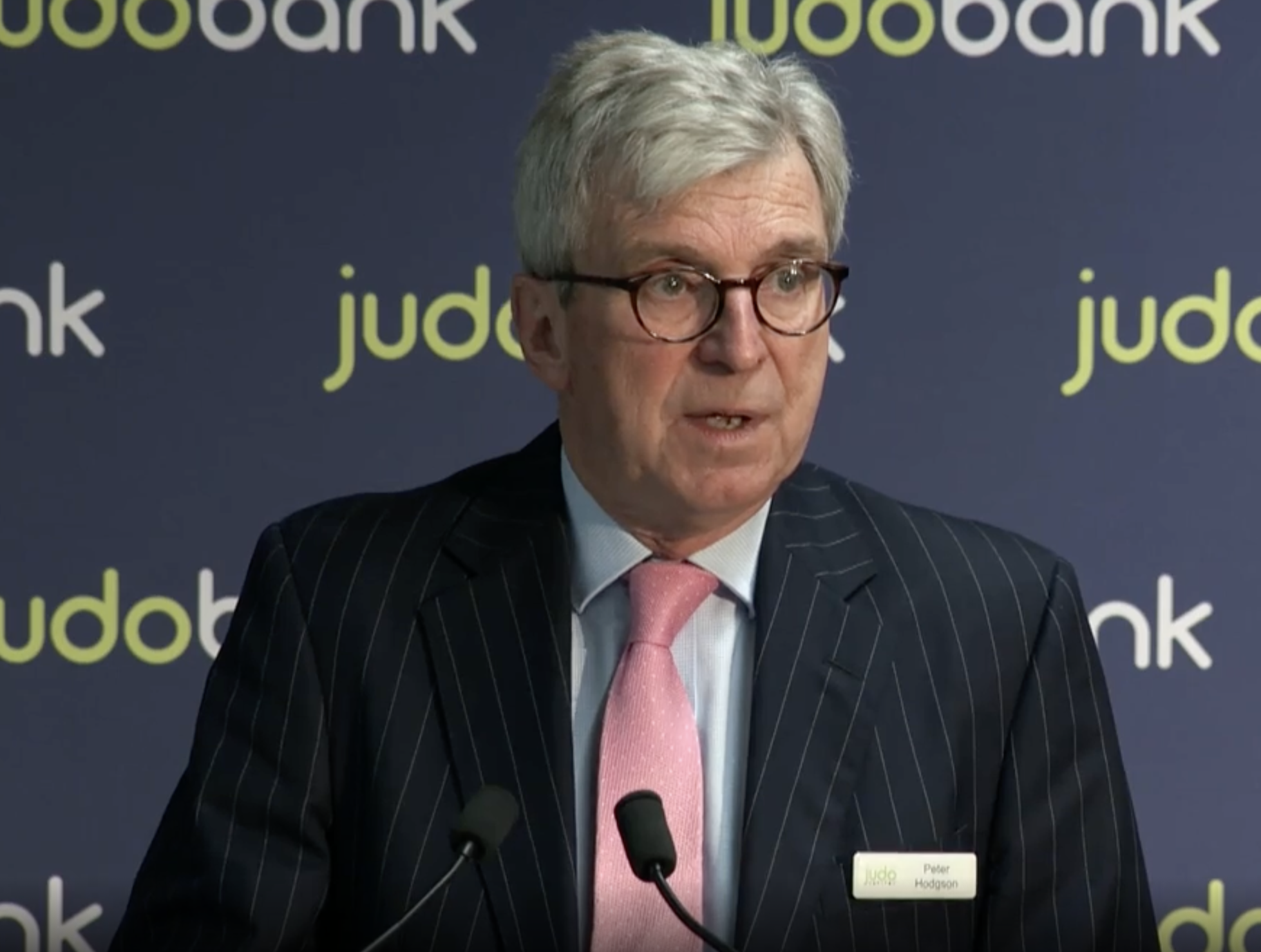
Peter Hodgson. chair, Judo
Judo Bank chairman Peter Hodgson yesterday launched an extraordinary attack on investors who have driven down the market value of his company’s ASX-listed scrip, saying he was frustrated and disappointed with the underperforming share price despite “clear progress” in meeting and exceeding growth targets.
In his formal address to Judo’s annual shareholders meeting, Hodgson said his board had been taken aback by the savaging of the bank’s share price after it reported a maiden full year net profit of A$73.4 million for the 12 months to the end of June.
“When we presented what I and the board considered a sound full year result in August, we were all taken aback by the fall in our share price,” he told shareholders.
“We asked ourselves, was this a verdict on strategy, the results themselves or what some may perceive as uncertain times ahead.”
Judo’s share price tumbled 20 per cent to $1.01 after it unveiled its full year profit on 24 August.
Since then, it has continued to slide, having traded under $1 for most of October.
Banking analysts are concerned about the sustainability of the company’s net interest margins in the current economic environment and the strategic implications of the bank’s dependence on brokers to originate most of its lending despite the rollout of a large national proprietary sales network.
With 123 bankers spread across the country, Judo has positioned itself as a specialist lender to small businesses focused on acquiring borrowers through a relationship-based banking offer.
Several analysts have noted a potential strategic disconnect between the reliance on third party origination to grow volumes and the investment in proprietary distribution.
However, there appears to be a general sentiment that the company’s valuation is likely to be enhanced if its relative credit quality metrics are able to weather the test of a full interest rate cycle.
Throughout the meeting Hodgson highlighted the business milestones achieved by the business last year, including expansion of the deposit base above $6 billion and the lending book to more than $9 billion.
When shareholders at the meeting noted that the company appeared to be dancing the right steps but that investors “don’t seem to like the dance”, Hodgson redoubled his critique of the market.
“Seemingly whenever we announce something positive the share price doesn’t seem to respond,” he told the meeting.
“The team are earnestly searching for other long-term investors – there is a concerted program around expanding the investor base.
“It’s incredibly frustrating where we’ve ended up, notwithstanding the continued positive news.”
Hodgson said senior executives would embark on a roadshow in Europe next month to market the company to institutional investors.
Four institutional investors hold material stakes in Judo that collectively account for around one quarter of the total shares on issue.
The only Australian-based fund manager with a substantial shareholding is Sydney-based ECP Asset Management, which holds a 5.7 per cent interest.
The other big stakeholders are overseas-based investors, including Bain Capital Credit (9.4 per cent), Fidelity Investments (5.08 per cent) and investment vehicles controlled by the Singapore Government (7.03 per cent).
Hodgson told the meeting that directors had sought feedback from these investors about the market’s negative response to the full year profit result.
He said none of the shareholders took fault with the company’s singular core strategy for building a small business focused bank.
Hodgson’s jawboning might have borne lightning results on the ASX yesterday.
For the first time in many months, Judo was the star performer among listed banking stocks, closing up 2 cents or 2.4 per cent to 85.5 cents.
The financials index (excluding property trusts) closed down almost 1 per cent led by ANZ which shed 33 cents or 1.3 per cent to $24.85.